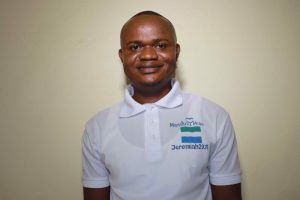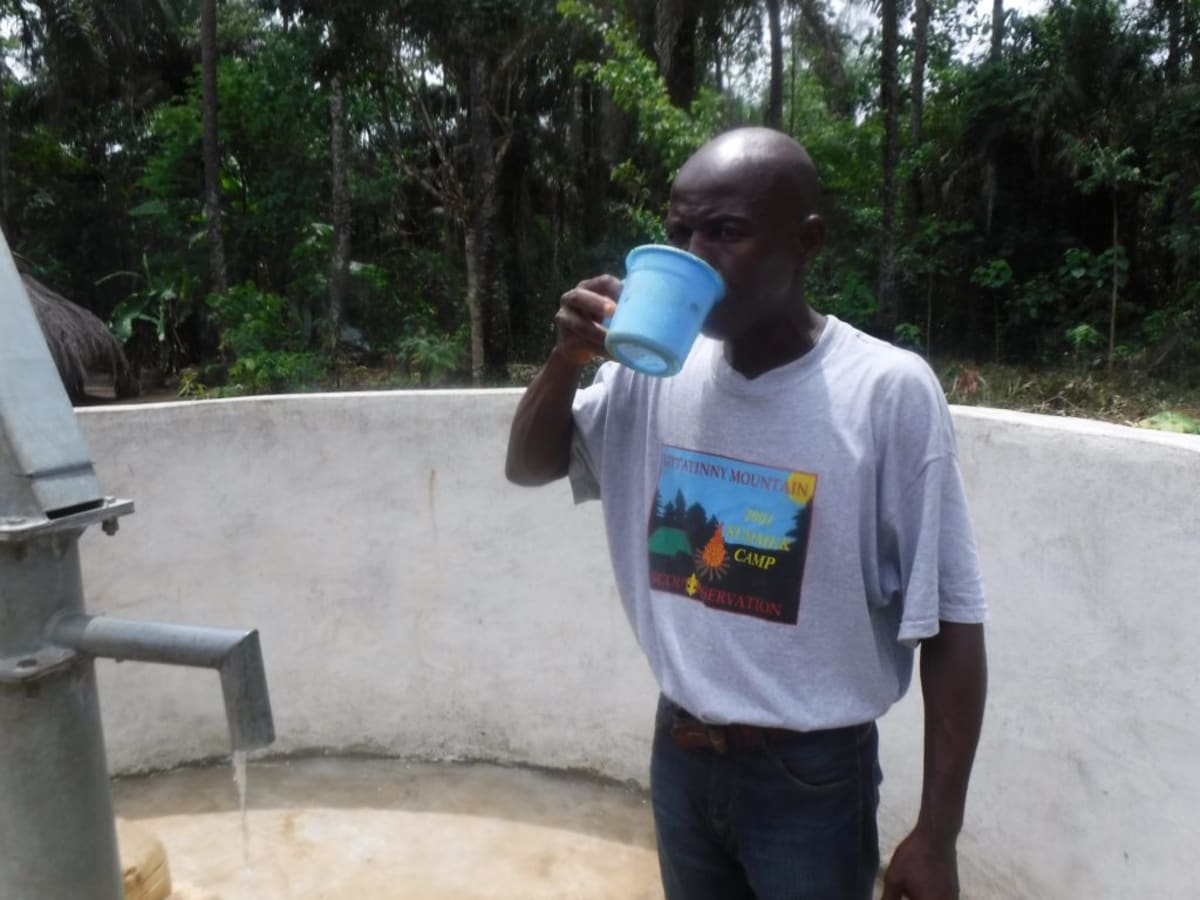September, 2022: Masoro Community Borehole Well Project Complete!
We are excited to share that there is now a safe, reliable borehole well at Masoro Community. As a result, community members no longer rely on unsafe water to meet their daily needs. We also conducted hygiene and sanitation training, which focused on healthy practices such as handwashing and using latrines.
"Today, we give thanks to the almighty God for giving us [a] safe and pure drinking water point," said 17-year-old Zainab B.

Zainab, on the left in the black dress, splashes water with other ladies from Masoro.
"Today, all households have access to an improved source of drinking water, with a roundtrip collection time of no more than twenty minutes," Zainab continued. "All the challenges I suffered from fetching water [are] gone. With that, I want to thank [everyone who] saved our lives with safe and pure drinking water."

Zainab, left, celebrates with Ward Councilor Paul Dickson Kamara.
"Since I was born and grew up in this village, we [have] never [had] safe and pure water to drink. This will be a historical moment in my life forever. It is a wonderful day, to finally have a good water point that [will] not dry up and can serve us throughout the year," Zainab concluded.
"Previously, I suffered to fetch water from the stream," said 14-year-old Foday S., who we talked to when we first visited Masoro Community.

On the left, Foday carries water from the stream. On the right, he pumps water from the new well.
"Sometimes, I [would] come across wild animals on my way to the stream," Foday explained. "[Then], I [had to] return home without fetching water. Also, I [had to] wait for the hot temperature of the sun to calm before I [could] fetch water. At times, I [could] only make three trips a day because of the distance to the stream. This also caused me not to have [a] chance to play football with friends."

Foday splashes water with other community children.
"But today, I am extremely happy to have a water point in the community. The water point is easily accessible, safe, and pure to drink, so [a lot of] energy [is] not required to fetch water from this water point. [It] is about a five-minute walk from our house to the water point."
We held a dedication ceremony to officially hand over the well to the community members. Several local dignitaries attended the ceremony, including representatives from the Port Loko District Council, the Ward Council, and the Ministry of Water Resources. Each official gave a short speech thanking everyone who contributed to this water project and reminding the staff and students to take good care of it. Then, Zainab and Foday made statements on their community's behalf. The ceremony concluded with celebration, singing, and dancing.

Community member sing and dance at the well.
One of the community elders left the ceremony and sat under a nearby tree. Our field officers noticed that she was crying, and they asked her what the matter was. She said that for the 60 years she had lived in Masoro, they had never had a source of safe drinking water, and she was just so relieved to see this day finally come to fruition. The chief of Masoro even named the anniversary of the well's installation as a local holiday.

Community elders splash water.
New Well
The drill team arrived the day before beginning work. They set up camp and unpacked all their tools and supplies to prepare for drilling the next day. The community provided space for the team to store their belongings and meals for the duration of their stay. The following day, work began.
Our team dug two pits next to the drill rig, one for the drill’s water supply and another for what the drill pulls out of the borehole. In some cases, we order a private supplier to deliver the water for drilling since water access is already challenging.

Digging the drill pits.
Day one of drilling began as the team mixed water with bentonite, an absorbent clay, in the two dug pits. Next, the team fixed a four-inch carbide-tipped bit to the five-foot-long drill stem. They started the mud pump to supply water to the drill rig so that drilling could begin!

After putting each five-foot length of drill stem into the hole, the team took material samples. We labeled the bags to review them later and determine the aquifer locations.
On the second day of drilling, the team expanded the hole and cleared it of mud. After reaching a total depth of 25 meters, the team forcefully pumped clean water into the well to remove any dirt and debris from the drilling process. We then protected the screened pipe by adding a filter pack. The team hoisted the temporary drilling casing to fortify the pipes with cement.

Next, we bailed the well by hand for three days before conducting a yield test to verify the water quantity. This well has a static water level of ten meters. With these excellent results, we installed a stainless steel pump. Water quality test results showed that this was clean water fit for drinking!

New Knowledge
Before conducting any hygiene training, we called and visited the local water user committee to understand the community’s challenges and lack of sanitation facilities. We shared the findings from our discussions with the committee members to help them make the necessary adjustments before the training began. For example, we identified households without handwashing stations or ones that may need to repair their latrines. With this information, community members worked together to improve hygiene and sanitation at home.
After this preparatory period, we scheduled a time when members from each household using the water point could attend a three-day hygiene and sanitation training. We then dispatched our teams to the agreed-upon location to hold the meeting.
We asked for one participant from each household and got more than one for all three days of training, which serves to demonstrate Masoro's commitment to change.

Training topics covered included handwashing and tippy taps, good and bad hygiene habits, disease transmission and prevention, COVID-19, worms and parasites, proper dental hygiene, proper care of the well's pump, keeping the water clean, the cost recovery system, the importance of using dish racks and clotheslines, the importance of toilets, keeping latrines clean, balanced diets, the diarrhea doll, and HIV and AIDS.
One notable topic was worms and parasites, which is a common issue in tropical climates like that of Sierra Leone. We showed participants scaled-up models of the more common worms that can infect humans.

A training facilitator shows participants the models of worms.
One man raised his hand to share his own story and recounted how he didn't know he was infected with worms despite having felt poorly for three months. He tried traditional medicines, but nothing worked. Finally, he became violently ill and had to call his daughter to take him to a hospital, where he stayed for a month. When he returned, his neighbors were surprised to see him alive. He reminded everyone never to walk barefoot outdoors and to take deworming medicine every few months. The other participants applauded him for sharing his story.
Another subject that inspired the village chief to share a personal story was when we showed a poster of a woman drinking from a stream as a goat drinks the same water. Everyone started whispering to each other, saying that they had been sharing their stream with animals as long as they could remember.

Then, the chief stood up and spoke. "I had a dog who always followed me when I [was] going to the farm, and our stream is on the way to the farm. One day, after I finished working, on our way back home, as we [were] approaching the stream, I felt thirsty, so I sat down and took a drink. As I was drinking, the dog also was drinking the same water. So, after some days, I [started] experiencing diarrhea, and I remembered the day I was drinking the stream water together with the dog. I believe this happened because we didn't have safe drinking water in our community. That is why we are happy for this good water facility."
One of the participants exclaimed that everyone in Masoro had been sick because they have been drinking contaminated water every day of our lives.

But learning these new lessons reinvigorated the community members' commitment to change.
"We will demonstrate how to use the pump and keep the area clean to our children and women that were not part of the hygiene and sanitation training," Zainab said. "The second goal is the cleaning of [the] water point. The water point will be cleaned at the end of every week by women and children. We will use soap, brush, and water to get rid of the dirt on the apron, headwall, and cover slab."
Foday echoed Zainab's sentiments on taking care of the new well. "We the children will take the key role to scrub the water point clean, to get rid of the dirt particles from [the] floor of the water well. Now that we have [a] safe and pure drinking water point, and with handwashing stations in front of our kitchen and latrines, we must increase proper hygiene and sanitation practices."
Conclusion
This project required a substantial collaboration between our staff, our in-country teams, and the community members themselves. When an issue arises concerning the well, community members are equipped with the necessary skills to rectify the problem and ensure the water point works appropriately. However, if the issue is beyond their capabilities, they can contact their local field officers to assist them.
Also, we will continue to offer them unmatchable support as a part of our monitoring and maintenance program. We walk with each community, problem-solving together when they face challenges with functionality, seasonality, or water quality. Together, all these components help us strive for enduring access to reliable, clean, and safe water for this community.
With your contribution, one more piece has been added to a large puzzle of water projects. In our target areas, we’re working toward complete coverage of reliable, maintained water sources within a 30-minute round trip for each community, household, school, and health center. With this in mind, search through our upcoming projects to see which community you can help next!
Thank you for making all of this possible!

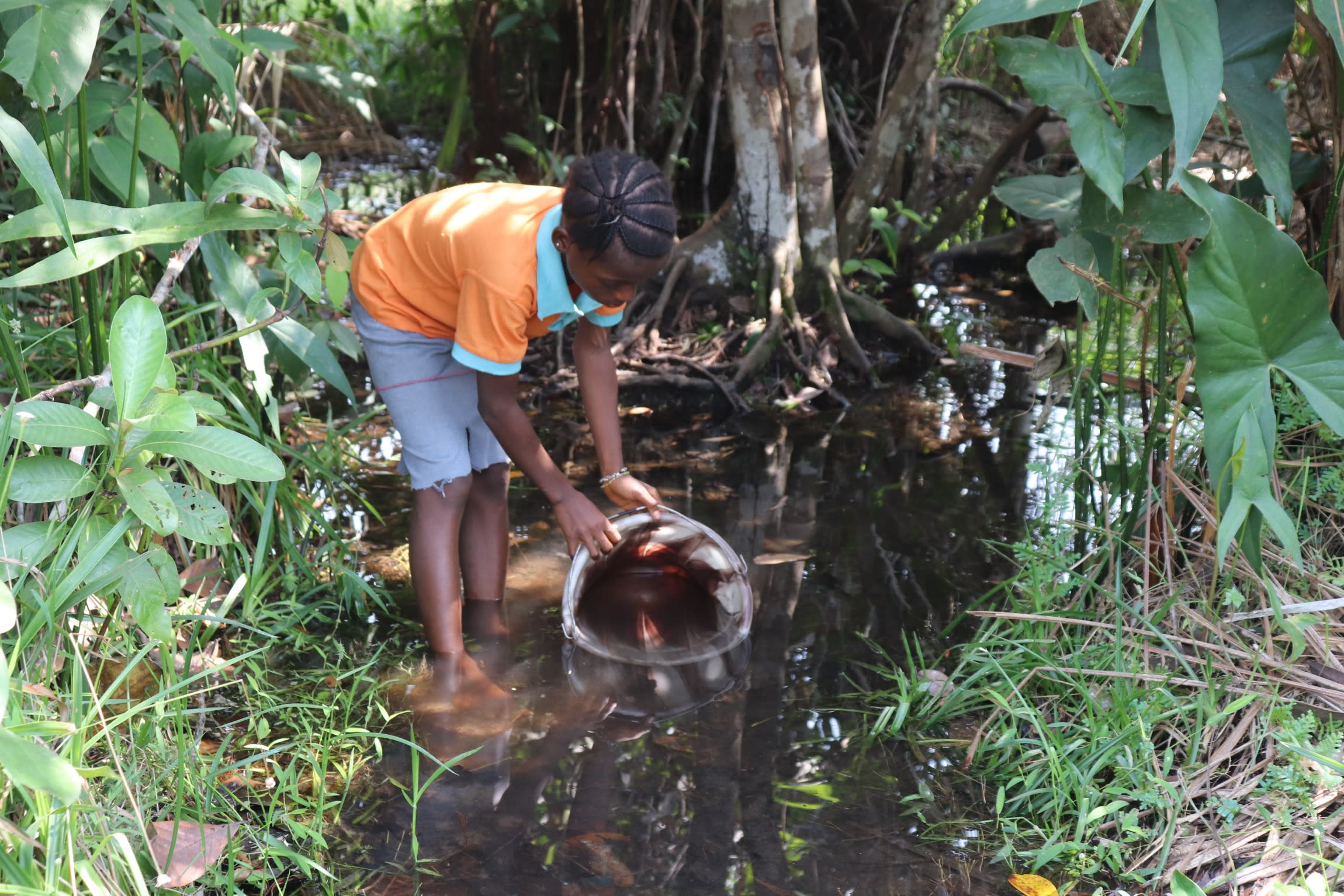
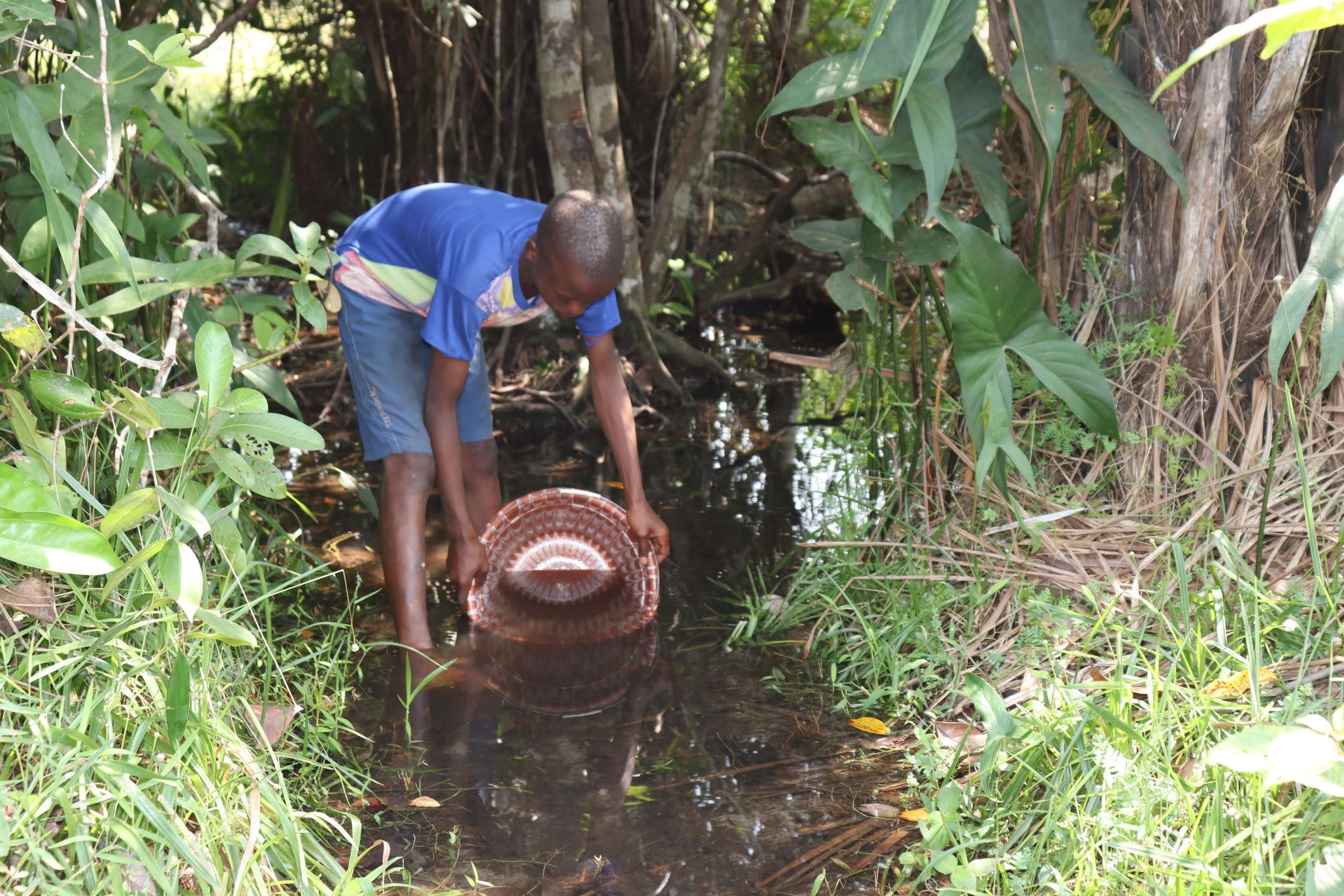
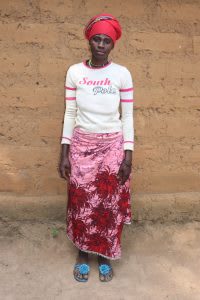 "I struggle to fetch water from the swamp to do my daily activities," said 26-year-old Fatmata Conteh, in the photo to the left. "I need to process palm oil, and the process needs enough water. The distance to the swamp to fetch water is far. This has reduced the number of liters of palm oil I end up getting from each production. I cannot make the amount of money I am supposed to get."
"I struggle to fetch water from the swamp to do my daily activities," said 26-year-old Fatmata Conteh, in the photo to the left. "I need to process palm oil, and the process needs enough water. The distance to the swamp to fetch water is far. This has reduced the number of liters of palm oil I end up getting from each production. I cannot make the amount of money I am supposed to get."
 Borehole Well and Hand Pump
Borehole Well and Hand Pump
 Rehabilitation Project
Rehabilitation Project








